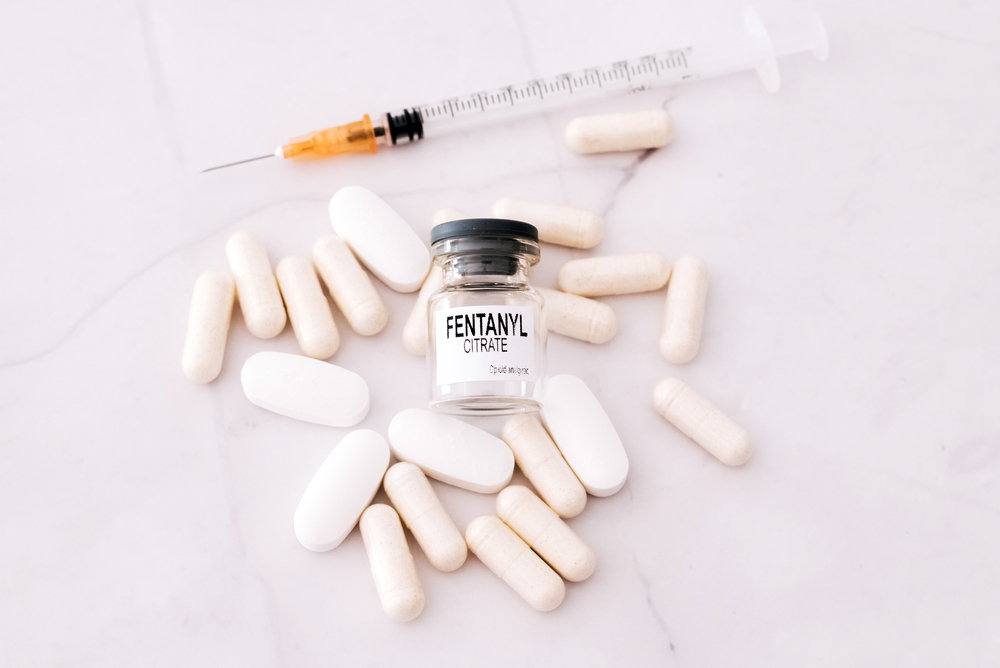
Drug overdose deaths have risen sharply in the US in recent years. In 2021, 106,699 people died from an overdose. According to Centers for Disease Control and Preventionthat number was up 14 percent from the previous year.
Experts say it’s not about more people using drugs; it’s that the drug supply has been contaminated with the highly potent fentanyl, a synthetic opioid that is 50 times stronger than heroin. Overdose deaths involving fentanyl increased 22 percent last year alone.
Although there are effective treatments for opioid addiction disorders, such as the drugs buprenorphine and methadone, and overdose reversal naloxone, the problem is still getting worse. As a result, scientists are rushing to find solutions.
Fentanyl vaccine breakthrough
Researchers at the University of Houston think the vaccine could help. In an October 2022 study published in the journal Pharmaceuticalsresearchers were able to show that in rodent models, the fentanyl vaccine successfully blocked the drug from reaching the brain and also reduced certain physiological responses, such as depressed breathing and heart rate, that are common in overdose victims.
Both male and female rats produced “significant levels of anti-FEN antibodies.” Although the researchers only tested on animal models, there is still much that can be learned from the trials, says the study author Colin Haleresearcher at the Institute for Drug Discovery at the University of Houston.
Read more: Here’s what makes certain opioids more lethal than others
How does the fentanyl vaccine work?
A typical vaccine causes the immune system to produce antibodies against the pathogen you are trying to fight. The antibodies produced by the vaccine bind to the virus or bacteria and neutralize them. “In this case, we made a vaccine that generated antibodies against a chemical,” Heile says.
Ideally, when a vaccinated individual takes a drug that contains fentanyl or fentanyl derivatives, the antibodies produced by the vaccine bind to the drug and prevent it from reaching receptors in the brain. They keep the drug in the blood until the body can eliminate it. Because fentanyl cannot enter the brain, the drug cannot be addictive and cannot cause the physical symptoms that lead to overdose death. Also, says Heile, “the vaccine prevents drug users from feeling the euphoric effect of fentanyl.”
In preclinical experiments, the vaccine worked for about 5 to 6 months in rodent models, which, Hale says, “is a short time in a rat’s life.” Whether this will similarly occur in humans is what researchers will be looking for in the first clinical trials to come.
The hope is that the vaccine could be used as a “relapse prevention tool.” For those who have entered drug treatment and are taking medications such as buprenorphine or methadone, possible vaccination can avoid relapse and the risk of death from a drug overdose. When a person has detoxed from a drug, their tolerance is reduced and they are more likely to die from an overdose if they relapse.
Read more: Is methadone safe for pain?
What’s next for the fentanyl vaccine?
Although an interesting concept, it is far from accessible to drug users. The lab has begun producing a clinical vaccine that researchers hope will be available within the next five months. From there, the lab will begin toxicology testing on animals and then this research will be submitted to the FDA for approval.
If successful, the next step is human clinical trials, which will likely take 12 to 18 months. Hale says some parts of the vaccine are already available in other vaccines, and other parts have been in human clinical trials before. He hopes the trials will be expedited because of the dire need. This is not the first vaccine like this, vaccines were developed to protect against morphine in the 1970s and another to protect against cocaine.
According to Catherine Neale Harrisdrug policy researcher at Rice University’s Baker Institute for Public Policy, assuming it proves effective in humans, the vaccine has the potential to reduce fentanyl-related deaths among drug users who want to avoid fentanyl altogether .
“Those who receive the vaccine will be protected from this exposure if they take medication adulterated with fentanyl,” she says.
For Harris, it’s just one tool in the overdose toolkit we can use to keep people alive. The problem is getting worse, not better, and it will take both innovative ideas and an open mind to turn the tide.
Read more: E-cigarettes with cocaine can help people struggling with addiction

